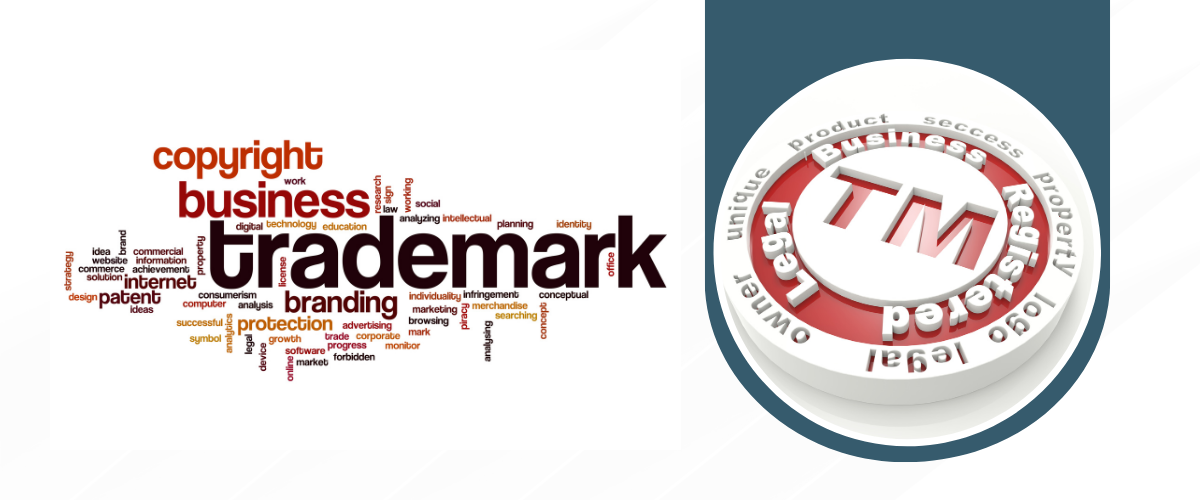Blogs
Demystifying Copyright Law: Protecting Your Creative Work
Trademarks, like logos and names, protect your brand identity, while patents protect your inventions and innovations. Both are crucial for safeguarding your business. Trademarks and patents are essential for your business as they offer comprehensive protection by safeguarding both your brand identity and technological innovations. This dual protection enhances your market position by building brand loyalty and ensuring exclusivity for your inventions. Additionally, trademarks and patents increase your business’s overall value, providing opportunities for licensing, partnerships, and attracting investors. Together, they help maintain a competitive edge and secure your business’s future.
Trademarks: Protecting Your Brand Identity
A trademark is a powerful tool that helps protect your brand’s identity. It can be a symbol, word, phrase, design, or a combination of these that distinguishes your goods or services from those of others. Here’s why trademarks are vital:
1. Brand Recognition
Your brand is your business’s identity in the marketplace. Trademarks help create and maintain this identity by protecting your logos, names, and slogans. This allows customers to easily recognize your products and services, building trust and loyalty.
2. Legal Protection
A registered trademark gives you the exclusive right to use the mark in connection with your goods or services. This means you can take legal action against anyone who uses a similar mark that could confuse consumers. Without trademark protection, your brand could be vulnerable to misuse by competitors, which can dilute your brand’s value and reputation.
3. Market Advantage
Trademarks provide a competitive edge by preventing others from using similar marks. This exclusivity helps maintain your brand’s uniqueness in the market, making it easier for customers to differentiate your products from those of competitors.
Example: Macy’s Star Logo
Macy’s distinctive star logo is protected by trademark law. This protection ensures that no other company can use a similar logo, which helps maintain Macy’s brand identity and market presence.

Differences Between Trademarks and Patents
| Feature | Trademark | Patent |
|---|---|---|
| Purpose | Protects brand identity | Protects inventions and technological advancements |
| Scope | Names, logos, slogans, brand identifiers | Inventions, processes, machines, compositions of matter |
| Duration | Indefinite (with continued use and renewal) | Typically 20 years from the filing date |
| Legal Protection | Prevents use of similar marks | Prevents use of the patented invention |
| Examples | Macy’s Star Logo | Walmart's Self-Checkout System |
| Key Benefits |
- Brand recognition - Legal protection - Market advantage |
- Innovation incentive - Competitive advantage - Monetization opportunities |
| Registration | Through the U.S. Patent and Trademark Office (USPTO) | Through the U.S. Patent and Trademark Office (USPTO) |
| Maintenance | Requires periodic renewal and continued use | No maintenance required once granted, but fees may apply during the term |
| Exclusive Rights | To use the mark in connection with goods/services listed | To make, use, sell, and distribute the invention |
| Market Impact | Helps consumers differentiate products | Prevents others from making or using the invention without permission |
| Asset Value | Enhances brand value and consumer trust | Can be licensed or sold for revenue generation |
Patents: Protecting Your Innovations
While trademarks protect your brand identity, patents are designed to safeguard your inventions and innovations. A patent grants you the exclusive right to make, use, sell, and distribute your invention for a limited period. Here’s why patents are essential:
1. Innovation Incentive
Patents promote innovation by providing inventors with a period of exclusivity. For a certain number of years, you have the sole right to benefit financially from your invention. This exclusivity encourages further research and development.
2. Competitive Advantage
Holding a patent can offer a significant competitive edge. It prevents others from using your invention without permission, helping you establish a strong market position and capitalize on your innovation.
3. Monetization Opportunities
A patent is not just a protective tool but also a valuable business asset. You can license your patented invention to others, generating additional revenue streams. Alternatively, you can sell the patent rights outright if that aligns better with your business strategy.
Example: Walmart’s Self-Checkout System Patent
Walmart’s patent for its self-checkout system grants the company exclusive rights to this technology. This protection allows Walmart to dominate the market for this innovative system, making it difficult for competitors to use similar technology without permission.
Trademark & Patent – Secret Ingredients
Ever wondered why Coca-Cola’s iconic red can is so recognizable, or why Apple can get away with that bitten apple logo on every device? It’s not just great marketing (although that helps!). It’s the secret sauce of brand identity protection: Trademark and Patent.
Think of your brand as a mouthwatering dish. You’ve perfected the recipe – a unique blend of ingredients, flavors, and presentation. But what if someone waltzed in and started selling a cheap imitation with the same name and a confusingly similar look? That’s where Trademarks come in.
A Trademark is like your recipe’s copyright. It protects your brand name, logo, slogan, or even a specific color scheme. It’s your way of saying, “Hey, this name and design belong to me! Don’t even think about stealing my secret sauce!” This ensures customers recognize your brand as the real deal, building trust and loyalty that keeps them coming back for more. Need more information; you may consultant with us over the phone. We are located at 150 SE 2nd Suite 300 Miami, FL 33131, and serving nationwide clients.
Disclaimer
This content offers general information and is not intended as legal advice. For personalized legal advice, please consult a qualified attorney.
.
Learn more: https://dorsainvillawfirm.com/trademark/
Email: info@dorsainvillawfirm.com
